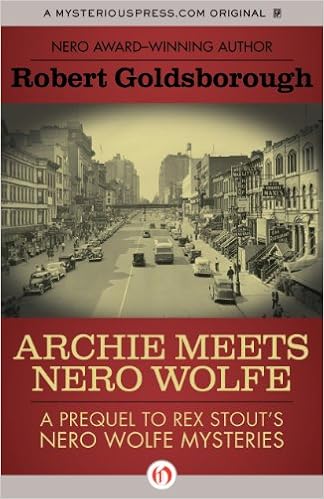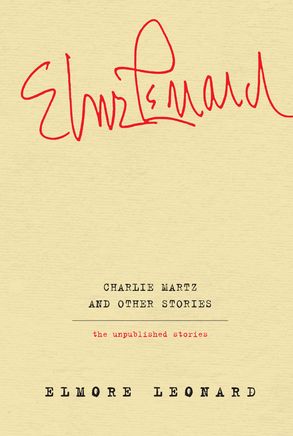Because I read everything, to the great detriment of doing almost anything else, occasionally I come across such obvious patterns, such amazing coincidences, that I have to share them with someone. Thus, I am happy to relate that I have found the true origins of Nero Wolfe. The only question is, whether it's genetics or reincarnation. I'll let you decide.
For those of you who have never met the one and only Nero Wolfe, he is the misogynistic, gourmet one-seventh of a ton detective who lives in a brownstone in New York City and only leaves it under extreme emergency conditions. He solves mysteries usually without leaving his chair, leaving the footwork to Archie Goodwin, his amanuensis, investigator, and general thorn in Wolfe's side. His brownstone is his haven, his castle, his fortress, in which he follows a rigid routine, cares for his orchids and his stomach, and is cared for by Archie and Fritz, his cook. (Theodore helps with the orchids, but let's face facts: nobody – not even Nero Wolfe – likes him.)

Some theories (and I get these straight from Wikipedia) are that Wolfe (born, according to Rex Stout and Archie Goodwin, in Montenegro) was the offspring of Sherlock Holmes and Irene Adler, who had an affair in Montenegro (why they chose that country to frolic in is undetermined). Others have said that if Wolfe was of Holmesian descent, it was via Mycroft, who was vast and logical, like him. Others have posited the thief Arsene Lupin as Wolfe's father. However, this is all gilding the lily, not to mention assuming that one detective (or thief) leads to another.

I believe that the origins of Nero Wolfe go all the way back to the early 18th century. Specifically to 1709, when Samuel Johnson was born, who grew up to be a man of exceptional mind and memory, a man to whom no place was so suitable to live as a major metropolis, in his case, London, and whose girth and eccentricities were as legendary as were his literary abilities. I speak, of course, of Dr. Johnson, lexicographer, poet, playwright, journalist, and wit.
What led me to correlate Nero Wolfe with Samuel Johnson was re-reading Boswell's "Life of Johnson". Their size, their reluctance to travel from their adopted great city (London for Dr. Johnson, New York for Nero Wolfe), their constant reading, and their love of food is identical. Both have remarkably similar amanuenses (Archie Goodwin, James Boswell) whom they find alternately useful, irritating, ubiquitous, and indispensable. Both Goodwin and Boswell are - to the urban dweller - from the sticks (Ohio and Scotland respectively). Both Goodwin and Boswell have had numerous amatory encounters, though Boswell was more graphic in his (secret) reminiscences than Goodwin. Essentially both write biographies, although neither are as educated, logical, or eccentric as their subjects.
 |
| Archie to the left, Boswell above. |

Yes, Dr. Johnson did marry (to a woman twice his age), while Nero Wolfe is, at first glance, the ultimate misogynist. (But even Nero Wolfe liked to look at women's legs: see
The Silent Speaker, Chapter 20) But "Tetty" was Johnson's only known dalliance, and he was known to be as severe as Nero Wolfe in his judgments upon the fairer sex. (“Never accustom your mind to mingle virtue and vice. The woman’s a whore, and there’s an end on ’t.”) But they both were respectful of virtuous wives and mothers, as well as of professional women who were good at what they did: Dol Bonner and Jackie Jaquette, in Wolfe's world; the writers Charlotte Lennox and Fanny Burney in Johnson's world.
But to me, it was the use of language that cinched it. It is almost identical. See if you can tell who said what:
- "Some people have a foolish way of not minding, or pretending not to mind, what they eat. For my part, I mind my belly very studiously, and very carefully; for I look upon it, that he who does not mind his belly will hardly mind anything else"
- "What finally ruled [Voltaire] out was something that hadn't been mentioned at lunch at all: he had no palate and not much appetite. He was indifferent to food; he might even eat only once a day; and he drank next to nothing. All his life he was extremely skinny, and in his later years he was merely a skeleton. To call him a great man was absurd; strictly speaking, he wasn't a man at all since he had no palate and a dried-up stomach."
- "I know not why any one but a school-boy in his declamation should whine over the Common-wealth of Rome, which grew great only by the misery of the rest of mankind. The Romans, like others, as soon as they grew rich, grew corrupt; and in their corruption sold the lives and freedoms of themselves, and of one another"
- “We are all vainer of our luck than of our merits.”
- "The only end of writing is to enable the readers better to enjoy life, or better to endure it."
- “I will ride my luck on occasion, but I like to pick the occasion.”
- "Every man naturally persuades himself that he can keep his resolutions, nor is he convinced of his imbecility but by length of time and frequency of experiment."
- “A man may debar nonsense from his library of reason, but not from the arena of his impulses.”
- "[A] pessimist gets nothing but pleasant surprises, an optimist nothing but unpleasant.”
- "He is no wise man that will quit a certainty for an uncertainty."
- "Where there is no education, as in savage countries, men will have the upper hand of women. Bodily strength, no doubt, contributes to this; but it would be so, exclusive of that; for it is mind that always governs. When it comes to dry understanding, man has the better."
"The true, strong, and sound mind is the mind that can embrace equally great things and small."
- “The more you put in your brain, the more it will hold -- if you have one.”
- "A fellow that makes no figure in company, and has a mind as narrow as the neck of a vinegar-cruet."
- "I never desire to converse with a man who has written more than he has read."
- “A person who does not read cannot think. He may have good mental processes, but he has nothing to think about. You can feel for people or natural phenomena and react to them, but they are not ideas. You cannot think about them."
- "It matters not how a man dies, but how he lives."
- “A guest is a jewel on the cushion of hospitality”
- "The right to lie in the service of your own interests is highly valued and frequently exercised.”
- “More people saying what they believe would be a great improvement. Because I often do I am unfit for common intercourse."
- "I have found you an argument; I am not obliged to find you an understanding."
- "A man is very apt to complain of the ingratitude of those who have risen far above him."
- “To pronounce French properly you must have within you a deep antipathy, not to say scorn, for some of the most sacred of the Anglo-Saxon prejudices.”
- "A Frenchman must be always talking, whether he knows anything of the matter or not; an Englishman is content to say nothing when he has nothing to say."
- “To assert dignity is to lose it.”
- "The law is the last result of human wisdom acting upon human experience for the benefit of the public."
- “Women don't require motives that are comprehensible to my intellectual processes."
(Answers at the bottom of the page)
For my final piece of evidence, I give you the novel
Gambit, in which Nero Wolfe burns a dictionary - bought with a flammable cover on purpose - because it allows the use of "imply" in place of "infer". A passion for precise language was certainly passed down from the man who wrote "
A Dictionary of the English Language".
Sadly, Dr. Johnson had no children. But he did have a brother, Timothy, who had children. The genes were put into the pool. Ladies and gentlemen, I give you twin sons, separated by time. So, was Nero Wolfe a descendant of Samuel Johnson's brother Timothy? Or is he a reincarnation?
Put a wig on the one, take the Tourette's away from the other, and we might just have the answer!
Nero Wolfe - 2, 4, 6, 8, 9, 13, 16, 18, 19, 20, 23, 24, 26
Samuel Johnson - 1, 3, 5, 7, 10, 11, 12, 14, 15, 17, 21, 22, 24, 25

 Now
for the main topic. Lawrence Block was recently interviewed
by Tripwire Magazine and I recommend you go to his site and read
the whole thing. It's all
great, but there was one piece that caught my attention in particular.
Now
for the main topic. Lawrence Block was recently interviewed
by Tripwire Magazine and I recommend you go to his site and read
the whole thing. It's all
great, but there was one piece that caught my attention in particular. As I recall I stomped my feet and shouted: "Exactly!"
As I recall I stomped my feet and shouted: "Exactly!"  I would be happy to hear what you have to say about this
subject but before we get to the comments, there is one more detail.
When I told my wife about Block's remarks she smiled and said
"Zusya."
I would be happy to hear what you have to say about this
subject but before we get to the comments, there is one more detail.
When I told my wife about Block's remarks she smiled and said
"Zusya."














